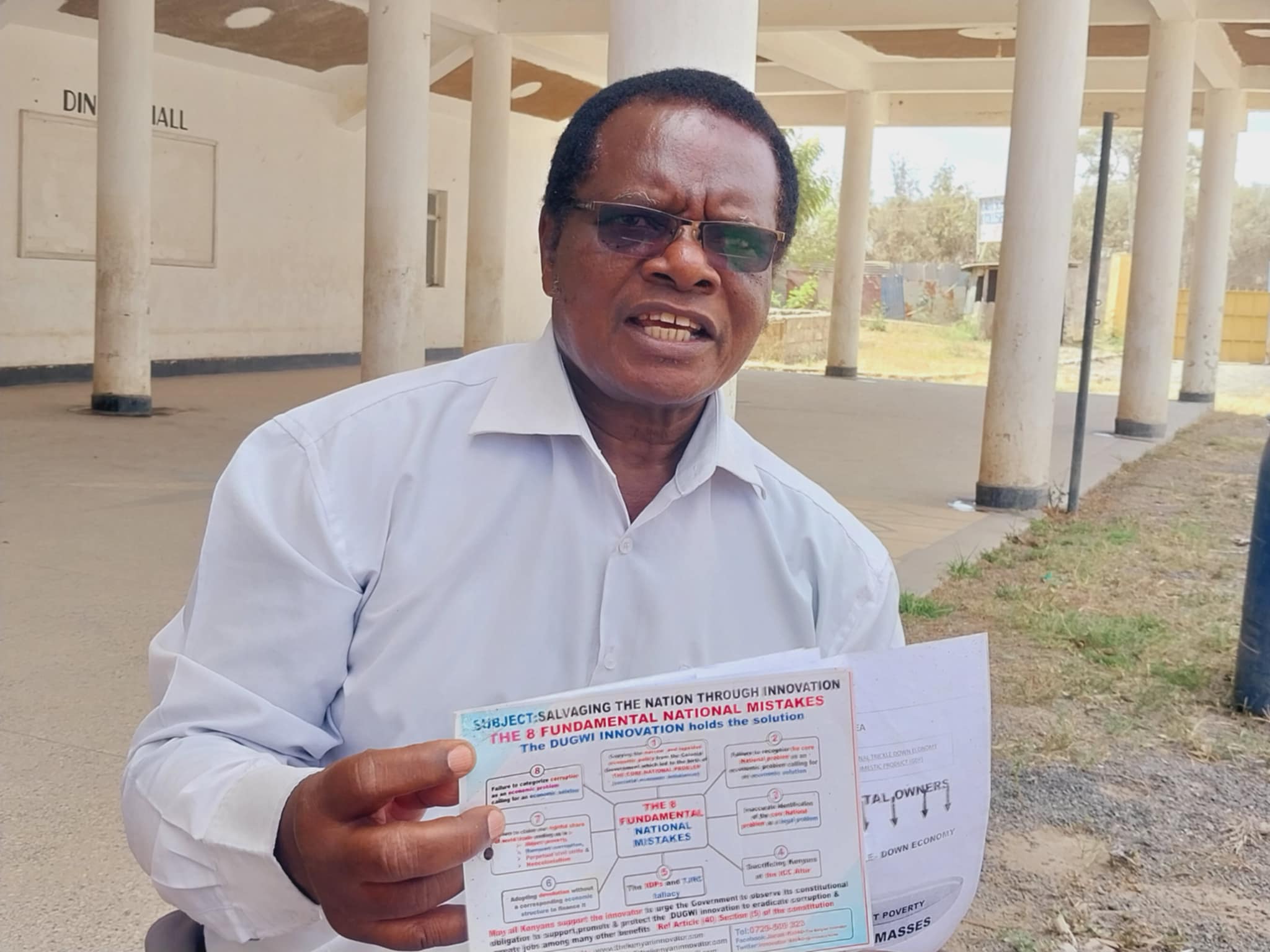Kenya’s economic challenges require economic solutions, not political ones, a Kenyan innovator has said.
Jacob Kioko, the inventor of the Dichotomous Universal Growth Web Innovation (DUGWI), has called for a fresh approach to the country’s economic development—one rooted in innovation and community-driven models rather than politics.
Kioko noted that his innovation is timely, especially following the U.S. government’s decision to cut down on funding to Kenya.
Kioko, a professional marketer and the copyright holder of DUGWI, argues that Kenya’s economic difficulties need more than political goodwill—they demand transformative thinking.
While acknowledging President William Ruto’s Bottom-Up Economic Model, Kioko believes it’s time to integrate structured economic innovation like DUGWI into the national framework.
“My proposal is the creation of a fourth non-executive arm of government—an independent economic reform authority guided by the DUGWI model,” Kioko said.
He spoke exclusively to The Star in Kitengela, Kajiado County, on Wednesday.
“This is not about replacing the government’s agenda but enriching it with a system that taps into the power of society and business working hand in hand,” he added.
The U.S. government recently terminated five major contracts and grants in Kenya, cumulatively worth Sh32.5 billion. This marks the onset of President Donald Trump’s drastic aid cuts to the country.
According to Kioko, DUGWI is a patented model that promotes mutual economic support between society and businesses. In this framework, businesses invest in communities through a retainer incentive system—locally known as bakshishi—generated from every purchase.
The cumulative value of these incentives is pooled to create a fund that helps individuals start and grow businesses, fostering inclusive economic growth from the grassroots.
He outlines a comprehensive structure that starts with Basic Human Development Units, scales up to Cottage Economic Units, and eventually forms County Economic Hubs. These, in turn, converge to build a National Economic Devolution Sector.
“This layered approach ensures that no one is left behind. From hunger elimination to social integration, we align with the vision our founding fathers had but didn’t fully realize,” Kioko said.
DUGWI, according to Kioko, offers a pathway for Africa to finance its own development using domestic resources—a solution to the long-standing problem of dependency on foreign aid and loans.
“This is Africa’s moment. With this breakthrough, we can lead not just in self-sufficiency but in global innovation,” he emphasized.
Looking ahead, Kioko envisions a future where Kenya trains innovators, exports knowledge globally through a World Wide Venture Business Corporation, and partners with international bodies like the WTO.
Ultimately, he proposes the creation of DUGWI International Finance (DIF), a body that would function on the same level as the IMF and World Bank—but rooted in African innovation.
The model also offers post-election opportunities for political leaders, providing alternative roles in economic development structures at all levels—from wards to the national stage.
“Whether you’re an MCA or a former presidential candidate, there will be meaningful work to do—transforming communities, leading enterprises, and ensuring economic justice reaches every corner of the nation,” Kioko asserted.
In this vision, Kenya not only redefines its own economic future—it becomes a global beacon of innovation-driven development.











